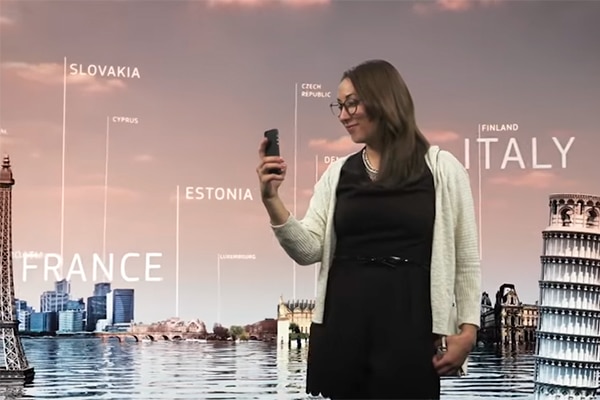
Small things matter to the way its citizens perceive the EU, as much as, or even more than grand schemes. By chance two things have come along at the same time, one a major breakthrough in the form of the elimination of roaming charges in the EU (plus Norway, Liechtenstein, Monaco and San Marino, but not Andorra, which opted out), and the other the 30th anniversary of Erasmus, a programme (rather than a policy) that has enabled 9 million students to travel and get acquainted with the Union.
The euro is not a small thing, but for the pocket –or for the credit card and other payment systems that are replacing cash– it is also a decisive measure, at least for the inhabitants of the Eurozone. Arguably the Economic and Monetary Union has lost its popularity due to a blanket austerity policy that many European citizens are nonetheless resigned to (according to various surveys), but support for the euro remains relatively widespread and buoyant.
Roaming charges affect the cost of what is now an extension of the human being, or at least of the human brain, which is what mobiles and mobile use have effectively become. The European Commission has been banging away for the last 13 years about the need to abolish this cost for citizens who cross EU borders, representing an advantage compared to non-citizens. The phone operators in the end have had to yield. It is something that will undoubtedly be noticed by millions of EU tourists in Spain this summer. Lest it be forgotten, 30% of Europeans holiday abroad (2015 statistics). What will happen with Brexit remains to be seen, but once British tourists get used to it, they are unlikely to want to give up the new system.
The Schengen system with its porous borders constitutes, for the citizens that benefit from them, another major advance in this context, as is the consular coverage shared by all European citizens when they travel outside the EU. There are plenty of other examples. And Europe needs to go much further in everything connected to digitalisation, including the collaborative economy within limits.
As for Erasmus, which was on the brink of being suspended not long ago for lack of funding, it needs to be bolstered at other academic levels, including offering professional training to adults who have lost their jobs. It will have served not only to train, to standardise educational curriculums, to encourage mobility in Europe, and to enrich students’ knowledge of host countries – although they normally share accommodation with others on the same programme rather than the locals – but also for encounters between young people from various European countries; and even in some cases from the same country if, like Spain, the system does not favour the mixing of students from different regions. How many long-lasting European couples, including Spanish couples, have been forged by these experiences? Just over 3,200 pioneers benefited in 1987-1988. Now there are 300,000 every year. And the EU has proposed that it should cover 20% of those enrolled in higher education by 2020.
Recent research by Florian Stoeckel into a group of German students, summarised in a London School of Economics blog post, concludes that their Erasmus experiences contribute to a durable strengthening of their European identity. And this identity is important in the context of the challenges the EU currently faces. Stoeckel underscores the importance of social interactions –which also take place via mobiles– in achieving a sense of community among citizens.
All of this links in to the idea of European citizenship, essential for constructing the Union not only from the top down, but also from the bottom up. This is a concept that Spain promoted at the end of the 1980s, but has lost impetus. Even if it is under another name (some people, such as the Danes, reject this terminology), it is indispensable, because it provides citizens with additional rights and possibilities by virtue of belonging to the EU.
The European citizenship idea should also serve to nurture other major projects, such as that of a fiscal Europe. A genuine and meaningful budget across the Eurozone or at an EU-wide scale should be funded not merely by transfers from the member states (whether from VAT or other types of taxation) but also –since one should have duties as well as rights– directly from European taxes on its citizens and European business, which will see how they are contributing to charges that benefit them and nurture solidarity and the idea of shared assets, indispensable to this project.
This type of Europe of small things could help the societies of the EU and the Union itself to genuinely transcend national borders. The free movement of people, which underlies all this, is an essential and central element of the Union, something that cannot be renounced for the sake of, for example, Brexit. But perhaps Brexit will give new life to this transnational dimension if, for example, there is acceptance for the Italian idea, which has picked up support elsewhere, of converting the 73 British MEPs’ seats into pan-European seats with a single list for which everyone will vote, a list that will be headed by the Spitzenkandidaten nominated for the presidency of the European Commission.
Small things also make Europe greater.


